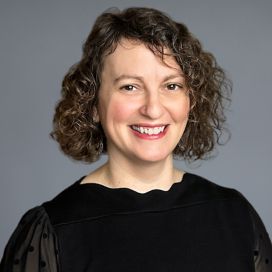“Grow Your Own” Educator Strategies in Wisconsin Rural Schools

Problem
Little is known about efforts to address rural teacher shortages.
Rural Wisconsin schools, which educate 44 percent of students statewide, are facing a persistent and increasingly dire teacher shortage. That scarcity is putting both the academic success of rural youth and the sustainability of rural communities at risk. The Wisconsin Center for Education Research at the University of Wisconsin-Madison contracted with NORC to analyze the current landscape of “Grow Your Own” (GYO) approaches to teacher development in rural Wisconsin, with a focus on Educators Rising programs. Educators Rising is a GYO program that encourages middle and high school students to become educators and is one of the largest and most-recognized GYO programs for high school students in Wisconsin and across the country. However, little is known about what they do or how and whether they should be supported through state policy. In documenting the landscape of GYO strategies being implemented in rural Wisconsin, this study identifies promising strategies already underway in rural schools and suggests areas for future investment.
Solution
NORC conducted a mixed-methods study of grow-your-own teacher efforts in rural Wisconsin.
The research team began the mixed methods study with surveys of rural superintendents and Educators Rising site coordinators to identify which rural schools had implemented various attracting, recruiting, and hiring strategies, including Educators Rising. The survey data informed the selection of five case study sites, based Educators Rising program maturity as well as their level of rural remoteness and proximity to teacher preparation programs. The site visits included focus groups with current Educators Rising students and interviews with program alumni, including both college students and practicing teachers. Taken together, these perspectives provided insight into which elements of Educators Rising are most important for student participation and ways to strengthen the pathway from student to teacher candidate to teacher. Interviews with site coordinators and school and district leaders identified additional complementary GYO strategies focused on paraprofessionals, college students, and teachers.
Result
Insights from our study may help rural school districts improve their efforts to recruit and hire new teachers.
The research team found that rather than waiting for policymakers to develop solutions to longstanding staffing challenges, rural districts across Wisconsin are actively involved in developing, implementing, and adapting a set of “home-grown” GYO strategies. Those efforts often take place in conjunction with other rural districts and partners such as educator preparation programs and Cooperative Educational Service Agencies.
Several of the strategies and initiatives show considerable promise in terms of cost-effectiveness, potential for impact, and sustainability/scalability. For example, small rural districts benefit from the formation of a multi-district Educators Rising chapter of rural districts to pool resources.
However, the districts also faced challenges associated with launching, sustaining, and scaling up GYO initiatives. For example, Wisconsin lacks a repository that documents which districts are currently implementing which types of GYO programs, how long these initiatives have been in existence, and how they are funded) and what (if anything) is known about their effectiveness. The state also falls behind in terms of dedicated funding sources for supporting education-specific GYO initiatives, and for Educators Rising specifically.







